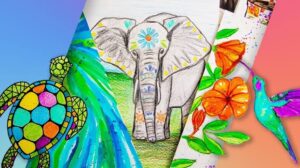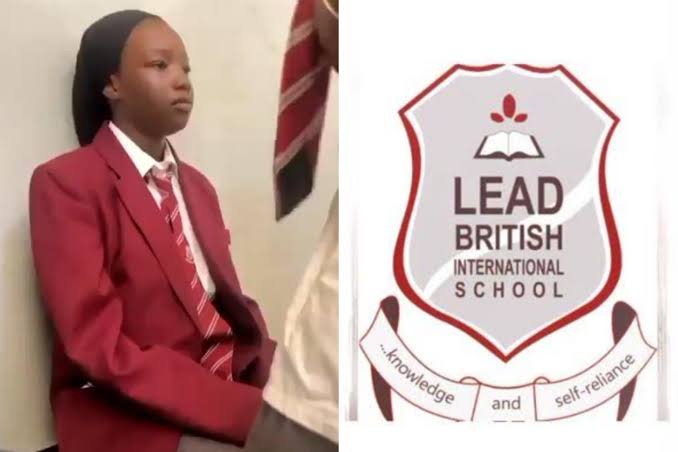Prior to discussing the five most manageable art courses to pursue in Nigeria, it is crucial to note that the definition of simple and difficult is highly subjective.
It is predominantly determined by your personal preferences and aversions. In this article, however, we will focus on courses that permit students to earn a gross point average (GPA) above the average.
Put simply, pursuing any of these art courses would make it easier for you to maintain a higher grade point average in comparison to others. Determine which five art courses are the simplest in Nigeria.

5 Easiest Art Courses in Nigeria are detailed below:
English Language
As a Nigerian whose lingua franca is English, one of the reasons studying English at the university level is straightforward is that you were almost undoubtedly instructed in the English language from elementary school through secondary school.
Additionally, if you have a fascination with both written and spoken language, studying English at the tertiary level would be even more manageable, since enthusiasm for a subject facilitates learning.
Furthermore, neither additional training nor the memorization of complex formulas are prerequisites for an English degree.
You will acquire industry-specific skills during your undergraduate studies in English Language, including writing techniques and styles, critical text analysis, advanced grammar and vocabulary, literary works comprehension, and the ability to articulate knowledge and understanding of texts.
Because these abilities are applicable to a vast array of industries and occupations, a degree in English Language provides excellent employment opportunities in Nigeria.
You can become an editor, author, researcher, public relations specialist, publisher, lecturer, journalist, technical writer, and much more with an English language degree. By relieving the pressure associated with degree attainment, proficiency in the English language provides graduates with versatile abilities that are applicable across almost any discipline.
Mass Communication
In Nigeria, Mass Communication (or Communication Arts in some universities) is one of the most straightforward art disciplines. With enthusiasm and an average command of verbal and written communication skills, this course will appear considerably less challenging than others in the field of art. Mass Communication is a pragmatic course that explores the strategy and intent of disseminating information to the general public, in addition to the study of communicating with the populace.
As a Mass Communication student at any Nigerian university, you will gain an understanding of the operation of media and its societal impact, conduct an analysis of various media formats, investigate the influence of media on culture, study media law and history, and develop your own media projects. The practical skills and theoretical knowledge that you will acquire through the study of mass communication are applicable to a variety of fields.
You can obtain effective employment in the ever-changing field of mass media, whether in the private or public sector, upon graduation. A Mass Communication graduate may obtain employment as a columnist, critic, program director, advertising representative, media planner, broadcast technician, journalist, and innumerable other positions.
5 Easiest Art Courses in Nigeria, read more below;
Literature in English
An additional art course that merits mention in this article is English Literature. Literature in English is a relatively uncomplicated course that demands critical analysis, debate, and theorizing regarding a vast assortment of published literary works, including plays, novels, and poetry. If you have a passion for the subject and completed Literature in English in secondary school (which is typically an O-level requirement for this course), you will discover that studying Literature in English is relatively simple, particularly if you put in sufficient effort.
An English Literature degree will endow you with highly sought-after transferable skills, including the capacity to conduct research, construct persuasive arguments, and produce eloquent writing, as well as proficiency in presentation and detail analysis. Upon completion of this program, you will be qualified for a wide range of positions, including journalist, book publisher, editor, instructor, and copywriter.
Read Also: 10 Highest Paid Art Courses in Nigeria
Religious Studies
Religious Studies refers to Islamic Studies and Christian Religious Studies in this context. Religious Studies, an academic discipline that investigates the institutions, conventions, and beliefs of world religions (Christianity and Islam in this instance), is among the most straightforward art courses one could enroll in at the university level.
You would devote the majority of your time as a Christian Religious Studies/Islamic Studies student to the study of scripture and the derivation of moral conclusions. Being a devout Christian or Muslim prior to enrolling in the Religious Studies program at the university would have acquainted you with the majority of the concepts that you will acquire knowledge of.
You, as a Religious Studies student, will not be required to complete practical assignments, commit complex formulas to memory, or complete a substantial quantity of coursework.
⁰This greatly facilitates the achievement of academic distinction, as it is considerably less challenging to sustain a high GPA in Religious Studies compared to the majority of art courses.
However, one must acknowledge that Nigeria offers a limited number of well-defined professional trajectories for individuals with a Religious Studies degree. Priest, pastor/Imam, Bible/Koran instructor, and religious counselor are all viable professions.
Studies of History and the International
This is yet another art course that is relatively less challenging to study in Nigeria.
In addition to providing a comprehensive comprehension of Nigerian history and historiography, a university education in history and international studies will enlighten you on the role of international forces and significant historical movements in the evolution of Africa.
Obtaining this would enhance your understanding of the universe. In addition, you will develop an understanding of the value of international relations theories and other analytical tools, as well as their practical application in resolving global issues.
A restricted employment market for Nigerian graduates of History and International Studies programs is one of the disadvantages of pursuing these disciplines in Nigeria. The addition of a master’s degree in a more marketable field, on the other hand, may increase your employability.
The art courses examined in this article were chosen on the basis that their graduates had a higher probability of achieving a cumulative gross point average (CGPA) above average upon completion of their undergraduate programs, in comparison to students enrolled in other art courses in Nigeria.






